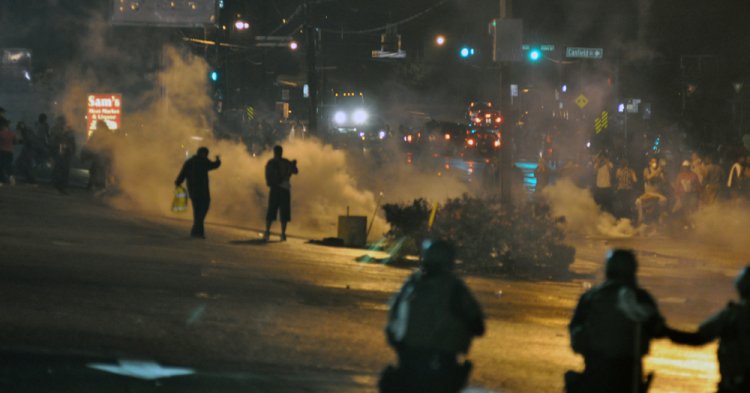According to Michael Privot, the executive director of ENAR i.e. the European Network Against Racism, Europe is more racist than what it has been in thirty years. Anti-immigrant parties’ increasing popularity across the continent seems to correlate with this and people’s attitudes in general have reportedly changed during the last few years. The struggles of the Roma have been covered in media, including their unfair treatment in countries like France and Hungary, so it’s no surprise that ”a growing tide of hostility” against them was reported by the Institute of Race Relations in 2013.
But the grievous news about violence with racial motives, alleged or confirmed, come from America, don’t they? Well, Europe’s not unfamiliar with them either. We’ve heard about the murders committed by Golden Dawn members in Greece and the adventures of German neo-Nazis. Beside Roma, migrants of African origin are another group liable to harassment, as experienced in e.g. Finland, Denmark, Malta and Ireland. The problem with ethnic violence is the fact that it’s often left unreported to officials and thus doesn’t appear in statistics.
Racism doesn’t always manifest itself in violence, of course. Hate speech continues to be a problem, notably on the Internet, sometimes raising discussion over prohibiting the anonymous posting of comments in online discussions. The Council of Europe has made effort to tackle this issue, launching a campaign against hate speech for the years 2012, 2013 and 2014. The Internet cannot be won so offensive comments will scarcely cease to cause trouble in the future but action, such as awareness campaigns, mobilising police officers to keep an eye on online discussions and perhaps changing name regulations, can still be (and have already been) taken to further deal with the problem.
In EU-style Rechtsstaats, official authorities ought to earn their legitimacy by respecting multiculturalism, the inevitable reality of 21st century Europe. We must, even when pointing out the existing issues, bear in mind that by and large, things are going very well in Europe, compared to a lot of other countries and regions worldwide. Yet still, segregation in housing and schooling, for instance, has caused dispute, with Roma shantytowns facing criticism and multicultural religion classes being difficult to handle in a manner that pleases everyone. Recently, the Ebola epidemy has also evoked concern about unnecessary racial stigmatisation, including stories about coughing black pupils being sent home from Austrian schools for evidently irrealistic Ebola suspections.
Finding jobs is oftentimes difficult for immigrants, especially from significantly different cultures compared to the one they’ve moved to, which of course often has logical reasons such as lacking qualifications and language skills. Nonetheless, stories of racial discrimination in recruitment procedures aren’t rare, or by any means incredible for that matter, considering that people from another race are not even the most popular neighbours in all European nations. A way to fight against this is requiring the employer to prove the candidate they’ve chosen for the vacancy more qualified than the member of an ethnic minority rejected in case discrimination is suspected.
History repeated itself during the Eurocrisis as extremist movements grew considerably in many countries. Immigrants’ high unemployment figures and the ”they’re stealing our jobs” argument have both been used as economic arguments by anti-immigrant groups. The other side should be considered as well: the types of discrimination described above contribute to social inequality, alienation and other issues which are bound to have a negative impact on the already frail economy. Furthermore, as a response to the job-stealing argument, a layman easily thinks that new inhabitants enlarge the market, thus allowing for increased entrepreneurship, ever so important economic competition and productivity. The question about how the economy correlates with the recently surged parties exhibiting xenophobic features is tightly tied to whether they’re here to stay this time or liable to fade away as the economy recovers.
While we follow the recent events in the United States, we must remember that Europe also has racial minorities struggling to be served justice. Being mindful of the issues, some of which are lying under the surface, is a step that has to be taken on the way to maximum equality. An increasingly diverse Europe must ensure that Ferguson won’t be seen in the Old Continent.


Follow the comments: |
|
